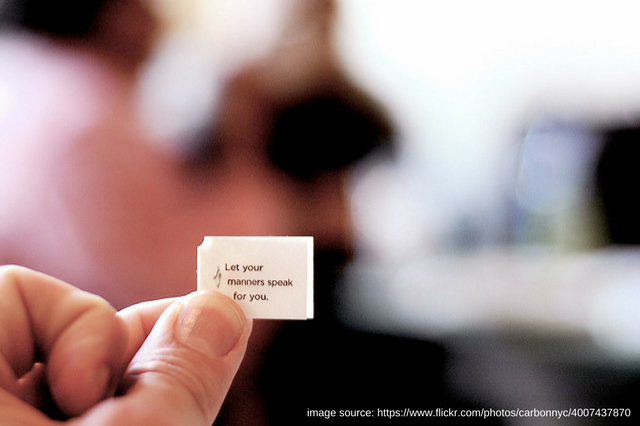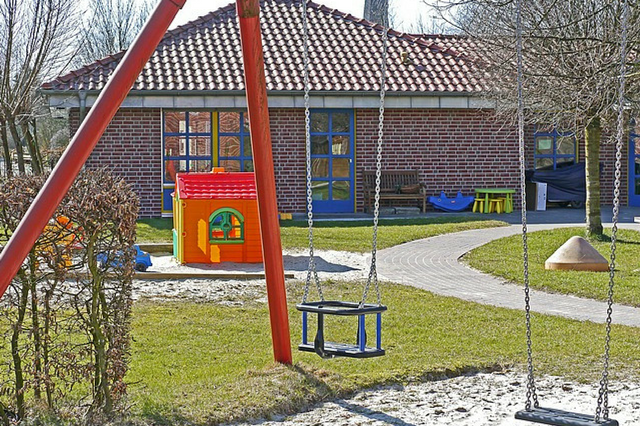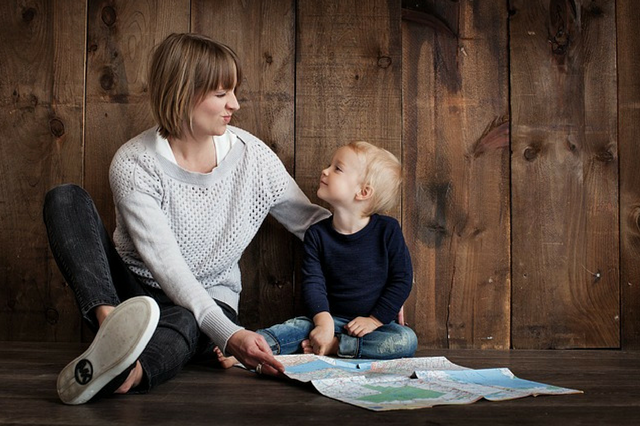What is etiquette? Etiquette is how people act socially using appropriate manners and behaving respectfully.
Etiquette is deeper than learning to say please and thank you, or wait your turn. Etiquette requires a few basic skills: social responsibility, communication skills, and responding to situations appropriately. These three skills come with maturity, self-awareness and awareness of others. As children grow up, they develop a refined ability to communicate politely, care enough for others that they don’t mind sharing or taking turns, and have the ability to control their emotional responses enough that they don’t burst into noisy tears when a parent leaves them at school.
How many parents have unsuccessfully tried to teach their kid manners and it turns into a meltdown? A child who is unable to delay gratification may have a meltdown while waiting for an ice cream sundae in a busy ice cream parlour. A lack of self-control gets in the way of good manners. Because true etiquette gets harder when a child has difficulty regulating their emotions, etiquette becomes secondary to a child’s ability to self-manage their emotions and reactions. Etiquette is therefore beyond saying please and thank you, it is respecting and communicating with people in a way which is appropriate, and deciding when to stay quiet.
Manners and etiquette training start at home often during certain scheduled times such as family dinners or going out. There are manners for attending events, visiting people, talking to adults or those in authority, and using public property items. Manners also apply for technology, as far as how loud and how often to use in public. Kids learn manners by training, repetition, and of course by example. When kids learn manners at home and then have them reinforced during etiquette classes or in some other context away from home, they recognize the importance of them more eagerly.
A few examples of important manners kids can learn once they’re mature enough, are:
• Listen while others are speaking
• Respect other people’s personal space
• Respect other people’s belongings
• Chew with your mouth closed
• Use a tissue to clean your nose, and cover your mouth and nose when you sneeze
• Always say “please and thank you”
• Never yell at someone
• Clean up a mess you have made, and take care of all your own stuff
• Honour and respect routines
• Act respectfully of those older than you
If your child needs help regulating their emotions first, before learning manners, you can:
• Help your child slow down and choose a more thoughtful, less impulsive response
• Provide practice scenarios that your child can think about how they would respond and talk about the variety of response choices together
• Coach your child to eventually gain these skills through practice
• Offer praise
• Delay gratification slowly
• Discuss a situation gone wild after it happened, in a calm, non-stressed way, so that they can become more self-reflective
• Consider mindfulness meditation for your child
Little Mountain Learning Academy is offering 8-week Coaching sessions as a part of its Very Young Learners program for Private School Admissions Preparation Program. In these coaching classes, young students will be encouraged to understand their responses to situations, take control of them, and learn how to put that control into practice by demonstrating good manners.
If you are interested in enrolling your child in this program, please give us a call at 604-221-2363.



 What is Missing in Daycare?
What is Missing in Daycare?